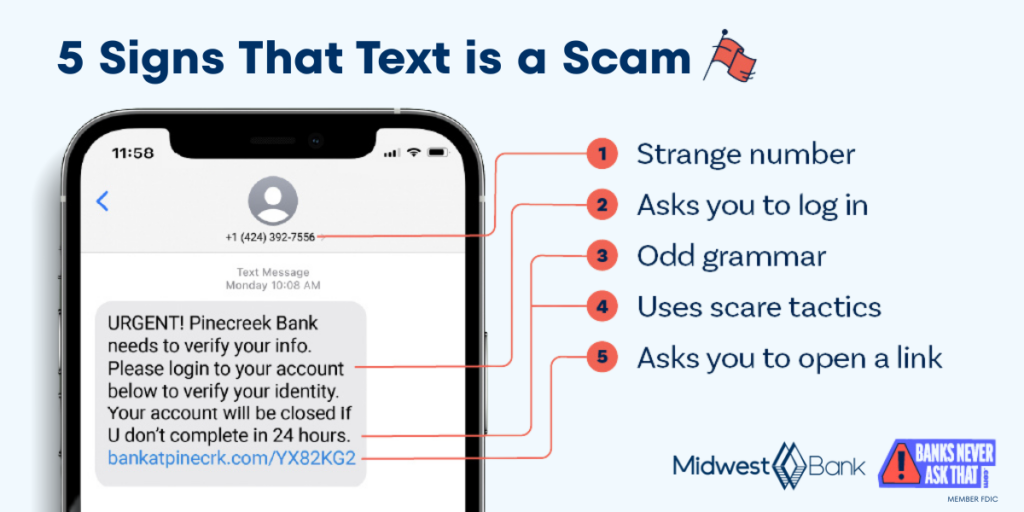By Jeff Steckman | Loan Officer | York Branch
In today’s fast-paced digital world, our phones are constantly buzzing with notifications—from friends, family, and unfortunately, fraudsters. One of the latest scams making the rounds is a smishing attack—a phishing scam delivered via SMS.
What’s the Scam?
You receive a text message claiming you owe an unpaid invoice, toll, or fee. It looks official. It might even include a recognizable logo from your local government, postal service, or toll authority. The message urges you to click a link to settle the bill—or face a penalty.
But here’s the catch: it’s fake.
This is a classic smishing scam. The link in the message leads to a counterfeit website designed to steal your personal and financial information. If you enter your details, the scammers get exactly what they want—your data. You won’t be paying a real bill, but you will be paying the price.
“At Midwest Bank, we see firsthand how convincing text message scams can be. If a message pressures you to act quickly, asks for personal information, or seems too good to be true—pause and verify. Your security is worth the extra moment.”
How to Stay Safe
Here are a few simple but powerful tips to protect yourself from smishing scams:
- Be skeptical of unexpected texts. If you weren’t expecting a bill or notification, treat it with caution—especially if it demands immediate action.
- Don’t click links in suspicious messages. Instead, go directly to the organization’s official website or app to verify any claims.
- Watch for urgency. Scammers often try to create panic to get you to act without thinking. Legitimate organizations rarely demand immediate payment via text.

Smishing scams are getting more sophisticated, but staying informed is your best defense. Always pause, verify, and think before you click. If something feels off, it probably is. For more fraud tips, click here.

